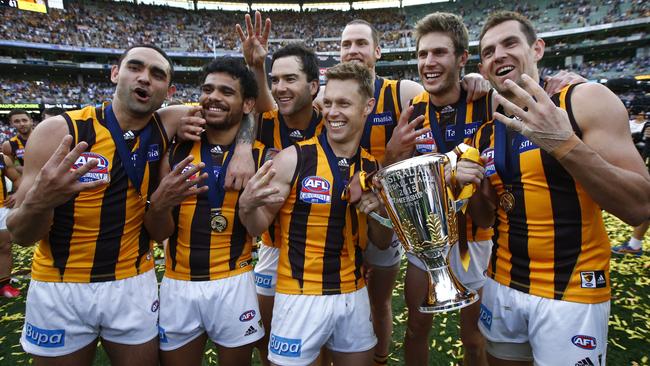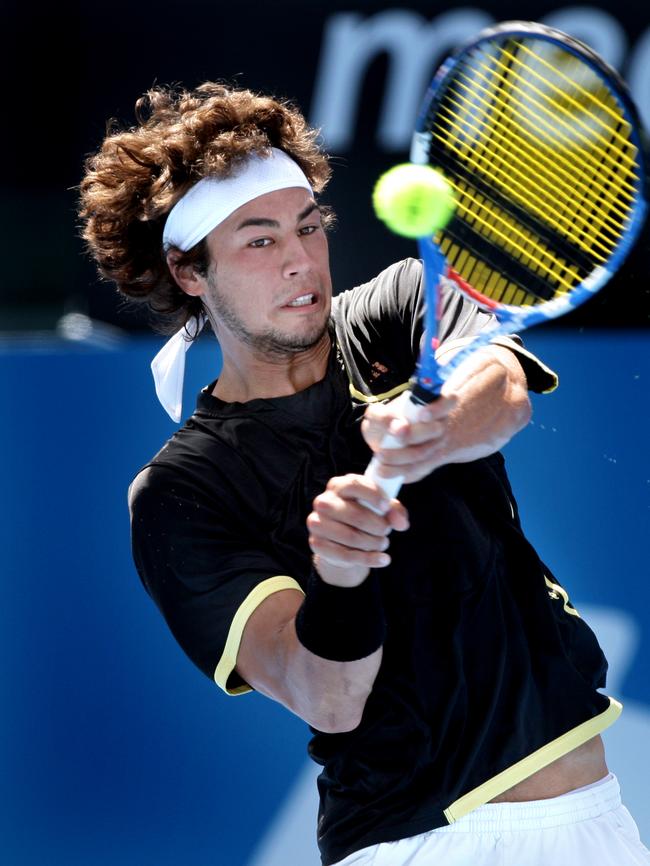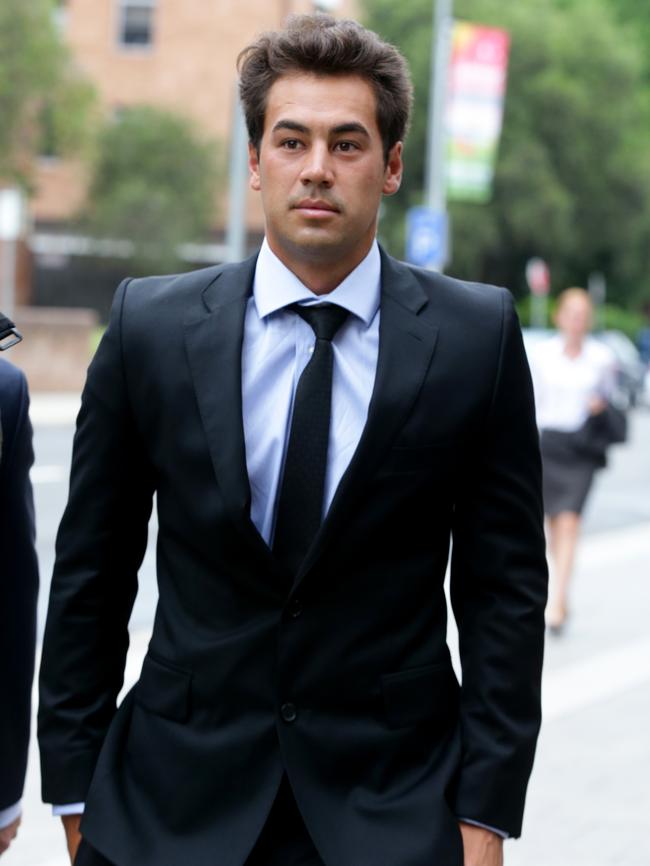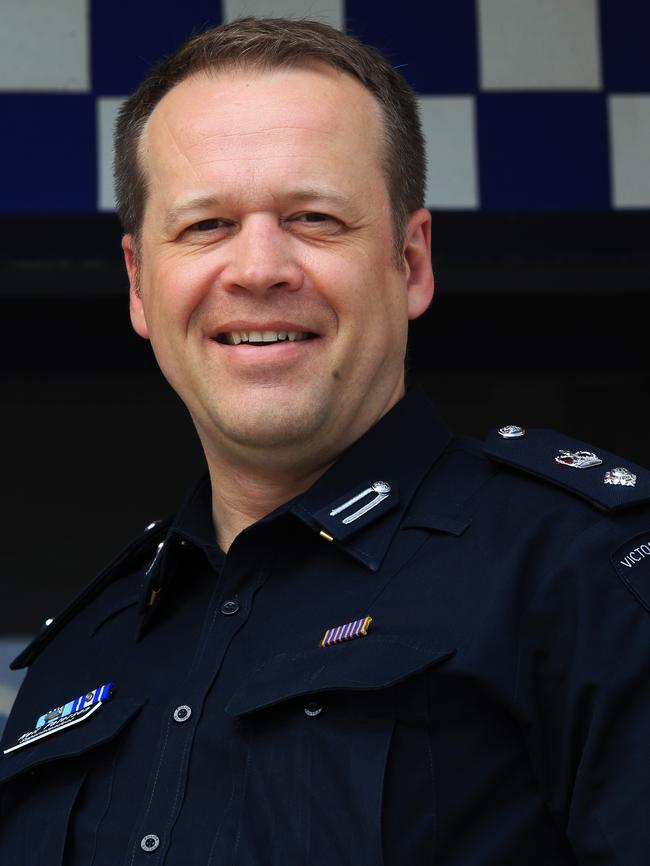How Australian sports are trying to stop criminals from making illegal betting billions
SERIOUS criminals are getting seriously rich through unregulated offshore sports betting sites. And Australian sports are trying to stop them.

VIC News
Don't miss out on the headlines from VIC News. Followed categories will be added to My News.
SOMEWHERE in a dark corner of South-East Asia, a basement crammed with hard drives, cables and screens is glowing with sports betting odds that are making some of world’s most serious criminals seriously rich.
With a few computers and a lot of cunning, criminal networks are setting up their own unregulated online betting agencies where they can manipulate betting markets or take punts on rigged matches millions of miles away.
It was in a “pop-up” gambling den in a flashy Nevada casino that the FBI arrested a Malaysian high-roller for allegedly taking illegal bets on the World Cup in 2014.
That man, who has links with Crown Casino here in Melbourne, is not the only person to be accused of making billions from these schemes. Although the case against him was ultimately dismissed.
There are others based in Asia who are surely in the sights of local and international law enforcement.
Closer to home, there are rumours of similar outfits having been set up in suburban Melbourne by one of this city’s suspected drug kingpins, a racing enthusiast with mates connected to the biggest game in town, Australian rules football.
FOREIGN GAMBLING GOLIATHS PLUNDER OUR BETTING MARKET
Whatever the sport, the broad match-fixing threat stems from crooks getting access to players or officials and having them fix the outcome of a game, or even certain points and events within it.
In some cases, athletes or officials simply share inside information that can better inform crooked bets.
If the bad guys know the outcome of a match, or have details of how the match will play out, they can clean their dirty money — usually drug money — by wagering it on a known outcome. A safe bet.
Fortunately, the AFL is alert to the broad match-fixing threat.
Its thick rule book strictly forbids any player or official from placing or having an interest in any “bet or wager on any Australian football Contingency”.
The league’s relationships with local bookmakers — including its lucrative partnership with CrownBet — allow it to keep tabs on any local wagering on footy by players and officials, and the league has a track record of cracking down hard on those who transgress, even in seemingly innocent circumstances.
The rules also legislate against players and officials contriving “to influence improperly the result of a match or any aspect of a match or any contingency related to an Australian football competition”.
The nature of football — there are 44 players involved in the contest as opposed to two in tennis — means it is largely immune from even the possibility of wholesale match-fixing.

But the proliferation of betting types now available does make it vulnerable to inside information — such as the personnel and positional make-up of sides, likely match-ups and tactics — being used for sinister purposes.
The rules forbid those in the know from disclosing such information, although it is naturally harder to police.
The AFL has joined other major sports in lobbying the Federal Government to make it legal for online Australian bookmakers to take “in play” bets (those taken while a game is in progress).
Now, these can only be done over the phone or at a retail outlet.
It’s done so because those bets are currently being made with illegal offshore bookies, like the networks operating in Asia.
The result, league bosses say, is a loss of revenue associated with those bet types, but also a concerning blackhole in the information-gathering powers of local authorities and the league’s expanded integrity department.
Police and sports integrity specialists seem persuaded footy is serious and active in patrolling integrity threats linked to punting.
The same cannot be said of tennis, a game considered to be among the easiest to fix because it only takes one player to rig a match, or even a point within a match.
At least two players were questioned by the Tennis Integrity Unit after a mixed doubles match at this year’s Australian Open, a matter which was referred to Victoria Police.
Days later — in a separate case — Aussie former top 200 player Nick Lindahl pleaded guilty in a Sydney court to a charge related to fixing a lower-level tennis match in 2013.
FRINGE TENNIS PLAYERS TARGETS OF SHADOWY FIGURES


Bookies and integrity experts who spoke to the Herald Sun agreed the sport had been slow to act on threats to its integrity, a theme which made headlines during this year’s Open and provoked world tennis to commission a sweeping review of its structures.
The probe, chaired by English sports law expert Adam Lewis QC, was hastily announced in a press conference for the world media in a bid to restore public faith in tennis.
The review will examine the appropriateness of “exotic” markets, such as betting on the number of aces served in a match, and “in-play’’ betting which allows people to punt on spot events that play out within matches.
It will turn particular focus to the strength of match-fixing legislation around the world after claims of illegal tennis bets spanning a decade were raised against 16 players in a BBC and Buzzfeed report last month.
The tennis inquiry will weigh up the future of sponsorship deals between betting agencies and Grand Slams, placing the Australian Open’s contentious partnership with British bookmaker William Hill on the chopping block.
It was William Hill’s version of web-based in-play betting that first attracted the attention of Australian Federal Police.
Australian residents are only allowed to place in-play bets over the phone to an operator or face-to-face with a bookmaker or TAB employee.
But William Hill has found a loophole.
It uses a smartphone app which allows bets to be placed using Voiceover IP calls, similar to Facetime or Skype.

William Hill contends it has legal advice suggesting the system is above board and police declined to probe the complaint about the service.
The Federal Government is considering making long-overdue changes to the Interactive Gambling Act.
Former NSW Premier Barry O’Farrell handed his review of illegal offshore wagering to the Turnbull Government in mid-December and its findings are expected any day now.
Whispers from the corridors of power suggest careful consideration has been given to how authorities can clamp down on “micro bets” such as ball-by-ball deliveries in cricket or point-by-point-play in tennis.
Tennis aces, first-goal kickers in the AFL and cricket no-balls are all in the spotlight.
Restricting or eliminating such specific bet types would in theory make it tougher for match-fixers to rig games while still leaving room for punters to indulge their passion.
Research analysts Merrill Lynch predict the Australian market could be flooded with an extra $500 million in revenue in the “midterm’’ if in-play betting laws are relaxed.
Australia’s leading sporting leagues including the AFL, NRL, Football Federation Australia, Netball Australia and Tennis Australia are all in favour of such a move.
They are fully aware of the bonus revenue that could flow to their codes if the market is shaken up and money now sent overseas by punters stays on Australian shores.
Licensed betting operators pay fees to the sports on which they run markets.
VICTORIAN GOVERNMENT CALLS FOR IN-PLAY BETTING CRACKDOWN
The Coalition of Major Professional and Participation Sports wants the ban on online in-play sports betting removed.
Although illegal offshore operators are denying them licensing revenue, the sports’ main concern is the integrity threat that goes hand-in-hand with black market wagering.
In its submission to the inquiry, the Australian Government’s National Integrity of Sport Unit said unprecedented expansion of unregulated betting operators, notably in Asia, had “heightened incentives to corrupt sports events, including by organised criminal networks’’.
“Any move to permit online in-play wagering is likely to increase the risks to sports integrity and to consumers, but could offer revenue-raising opportunities to address those risks,’’ it said.
In contrast to Australia’s ball codes, the racing industry is vehemently against in-play betting and wants the practice banned by phone and internet.
Racing chiefs believe that in addition to better guarding against integrity threats, it would encourage punters to visit racetracks and TAB outlets instead of placing bets via their smartphones from their living rooms.
The Australian Hoteliers Association is of a similar view, suggesting in-play betting can be “relatively controlled in the retail and telephone environment (where it is currently legal) … and should not be extended to the online environment, where the speed of betting is uncontrolled’’.
The Australian Sports Commission, which estimates the total value of wagering on sport in Australia at $4 billion annually and growing, accepts arguments for the widespread introduction of in-play betting.
But it draws the line at in-play betting being allowed for exotic or “micro-betting’’.
The Victoria Police Sports Intelligence Integrity Unit has taken a lead role in the global fight against match-fixing and unregulated betting.
Victoria Police Assistant Commissioner of Intelligence and Covert Support Neil Paterson says regulated in-play betting is worth considering as part of a broader suite of reforms.

“It is often better to regulate and get a view over something than to prohibit,” he told the Herald Sun in December.
Police say match-fixing is the fastest-growing organised crime market in the world and that in-play betting is a “corrupting influence” on sport.
Sport is corrupted when players throw matches or deliberately underperform, or when punters use inside information to inform their bets.
Betting markets can also be manipulated through a complex series of manoeuvres that analysts are wise to — provided of course, they can see them.
This is why unregulated offshore sites pose such a big threat.
If betting agencies are not sharing information with sports and law enforcement, it is impossible to detect odd betting patterns which raise the red flag for investigators.
Many of the problem online gambling happens on websites run out of the Philippines. The four biggest turn over about $2 billion a week between them.
The Malaysian high roller Paul Phua is the man behind one of the biggest such sites, ICBbet.
A poker player who has visited Melbourne’s Crown Casino, Phua is thought to have had close contact with some of the casino’s most influential figures.
He ultimately beat the FBI rap following that 2014 arrest.
But the criminal probe into his dealings revealed his suspected links to Hong Kong triad 14K.
Interestingly, a Malaysian government minister reportedly denied this triad connection in Phua’s formal court proceedings.
Which is perhaps why the experts insist that the need for regulation is bigger than one country.
Corrupt sports betting is a problem that needs a global fix.


